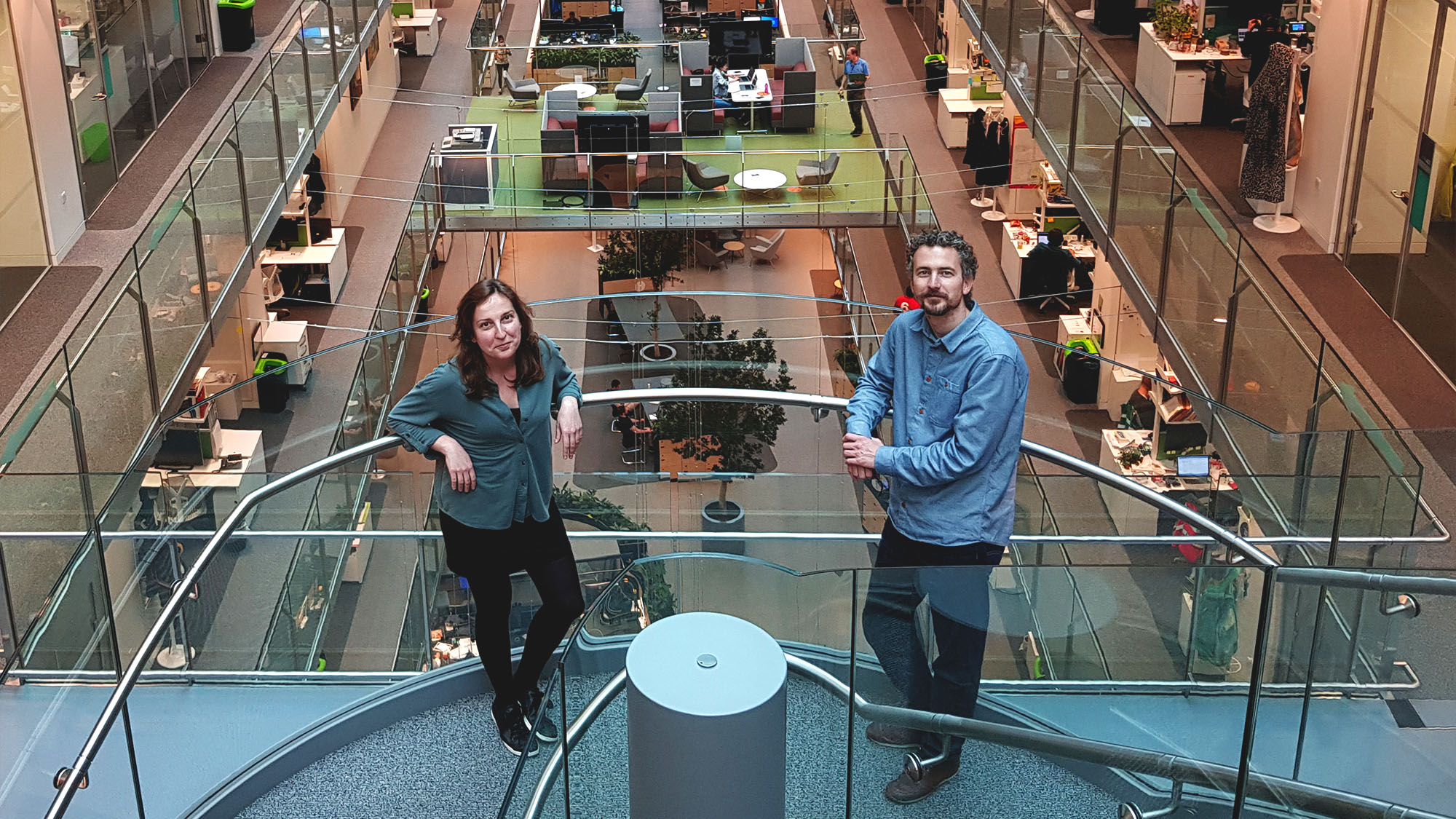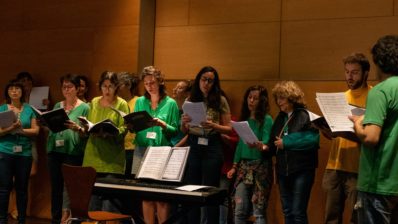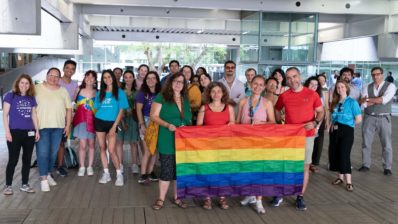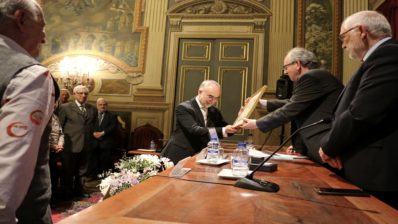Hector Huerga Encabo and Berta Canal de Torres are two former residents of the Barcelona Biomedical Research Park (PRBB). After completing their PhD in the Department of Experimental and Health Sciences, Pompeu Fabra University (DCEXS-UPF), they have met again, this time at the Francis Crick Institute in London, where they are doing a postdoctoral fellowship. They wanted to share with us their experience during the COVID-19 pandemic and their reflections on the role of science.
How many of us, researchers in basic science (or, in more accurate terms, fundamental science), have ever wondered if our research has a real impact on solving society’s problems?
In general, fundamental research is the basis that allows, in the long run, to generate “new inventions”, although the merit (and economic benefit) usually ends up in the most applied projects. Fundamental research is often unappreciated from an economic perspective, but it is nevertheless from fundamental research that the great shifts in our scientific understanding usually originate, and not from applied research, which is more directed. A good example of this is the CRISPR system, the scientific revolution of the decade, which originated from the fundamental research of a group in Alacant.
Fundamental research has allowed scientists around the world to meet the pandemic challenge in record time.
The COVID-19 pandemic has been an opportunity to clarify the importance of science in general, and of fundamental science in particular. The development of mRNA vaccines and the study of the evolution of variants and virus lifecycle are clear examples of the importance and success of fundamental research. This fundamental research has allowed scientists around the world to meet the pandemic challenge in record time. Of the many lessons we have learned over the past year, along with the need to care for and conserve our planet’s ecosystems, we could highlight the need to continue (and increase) investment in infrastructure and research staff, with a special focus on fundamental science, which have been decisive in facing the pandemic.
It is important to remember how, in the last 20 years alone, we have witnessed the appearance of three new coronaviruses; SARS-CoV-1, MERS-CoV and SARS-CoV-2, all causing serious disease in humans. However, we have not been able to anticipate and promote strategies to prevent the outbreak of this pandemic. For example, a better coordination between fundamental science, funding agencies, and applied science could lead to the generation of public libraries of new antivirals and antibiotics, that could be key in the face of new outbreaks.
“In the last 20 years, we have witnessed the appearance of three new coronaviruses that cause serious diseases in humans. But we have not been able to promote research into these infectious organisms suspected of causing future pandemics”
Along these lines, the pandemic has highlighted another very important feature of science and research staff, which is the ability to adapt to changing situations, reorient goals and collaborate. Many researchers around the world have taken advantage of their skills and knowledge to contribute to understanding, slowing down and reversing the consequences of this pandemic.
The London experience
On March 23, 2020, the Francis Crick Institute, like the rest of London, closed due to the pandemic situation caused by SARS-CoV-2. But, as in other research centers, including the PRBB, some of the research at the center did not stop, but was instead redirected.
With the aim of helping healthcare professionals keep hospitals running safely, Crick workers were involved in setting up a testing center for the NHS staff. In a matter of weeks, we launched a Crick testing network that allowed, in addition to testing staff from multiple London hospitals, the testing of Crick researchers so they could start projects aimed at answering the many questions about the new virus: How does it transmit? Which cells are infected and how? What response does it generate in different people? Can we identify new antivirals?
We, Hector and Berta, are part of the group of researchers who started projects at the Crick with the aim of understanding the virus and COVID-19.
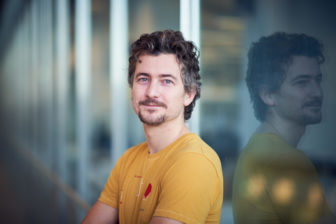
Hector Huerga Encabo
I did my PhD in the Immunology Laboratory of DCEXS-UPF, under the direction of Cristina Lopez Rodríguez and José Aramburu, studying the type I interferon pathway and the activation of the antiviral response. At the Crick, since mid-2019, I’m doing a postdoctoral fellowship at Dominique Bonnet’s lab, focused on hematopoietic stem cells.
In March 2020, I started a project to identify which cells in the hematopoietic system can be infected with SARS-CoV-2, and the impact on the functionality of these cells. We identified a population of erythroid progenitors that become infected and how this may explain the presence of immature erythrocytes in the blood and the development of anaemia in the most severe patients.

Berta Canal de Torres
I did my PhD in the laboratory of Francesc Posas and Laia de Nadal also at DCEXS-UPF, studying how replication and transcription are coordinated in stressful situations. At the Crick, I’m doing a postdoctoral fellowship at John Diffley’s lab, where I study fundamental aspects of DNA replication.
When the confinement began, we started an ambitious project in collaboration with other groups. The goal was to produce the 9 known enzymes from the virus, design specific assays for each enzyme, and screen a library of chemical compounds to discover inhibitors that could be used as new antivirals. We were able to produce and screen 7 of the enzymes, and we identified some inhibitors with antiviral properties in cellular models.
“We are privileged to have contributed our bit in the research against Covid-19, in this case from Crick”
The pandemic is having and possibly will continue to have dire consequences worldwide. We hope that global research efforts around the world will allow us to face this and future pandemics with better prospects. We feel privileged to have been able to participate in these research projects from the Crick and to have contributed in our own way.

